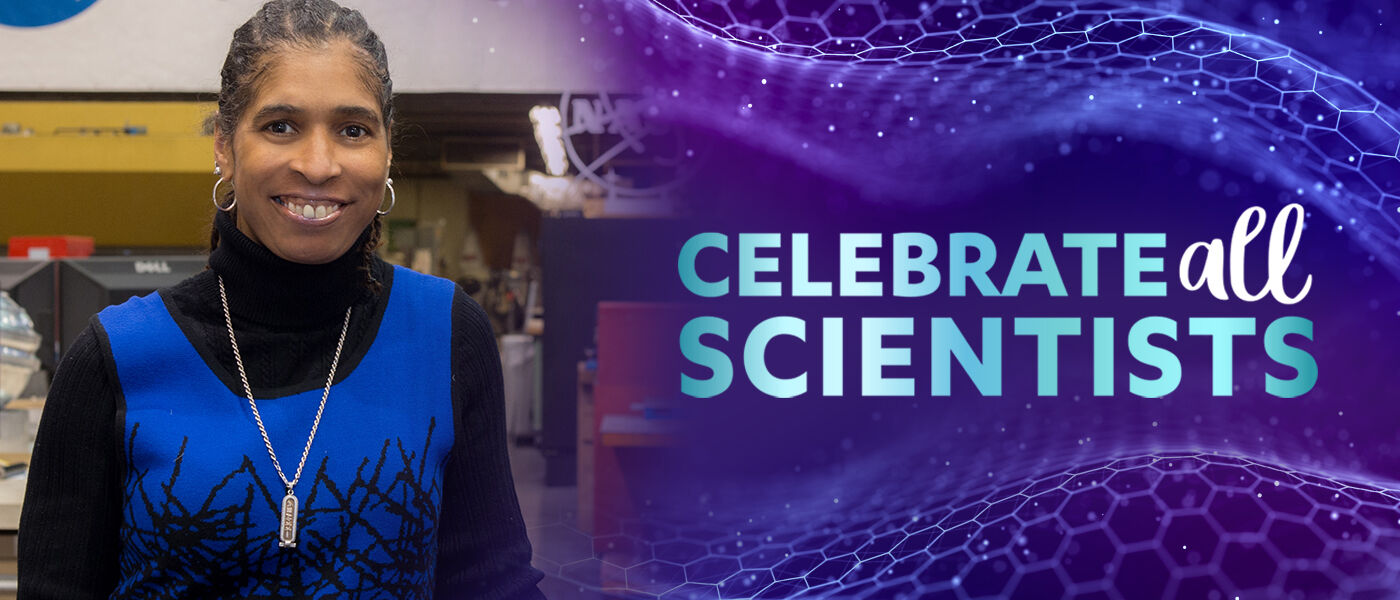Celebrate All Scientists: Dr. Aprille Ericsson-Jackson

February is Black History Month, and LSC is celebrating Dr. Aprille Ericsson-Jackson, an award-winning aerospace engineer and instrument manager at NASA‘s prestigious Goddard Space Flight Center (GSFC).
Dr. Aprille Ericsson-Jackson attributes her love for science to several pivotal childhood experiences. “The first was watching the Apollo missions on TV in school in first grade; the second was me winning second place in the 8th grade science fair where I built my first science instrument, and third,” Ericsson-Jackson continued to explain in an interview with USA Science & Engineering Festival, “attending the MIT UNITE science outreach program for minority students which I participated in during the summer of my junior year in high school.”
Fueled by these experiences, Aprille thrived academically. She graduated high school with honors, earned a B.S. in Aeronautical/Astronautical Engineering from Massachusetts Institute of Technology (MIT), an M.S. in engineering from Howard University, and became the first African-American woman to earn a Ph.D. in Mechanical Engineering from Howard University, and the first African American female to receive a Ph.D. in Engineering at NASA Goddard Space Flight Center (GSFC).
Dr. Ericsson-Jackson has made numerous contributions throughout her illustrious career, which spans over three decades. She has led proposal developments for various instruments, including the Near-Infrared Spectrograph on the James Webb Space Telescope. She was the Project Engineer for the Lunar Orbiter Laser Altimeter (LOLA) aboard the Lunar Reconnaissance Orbiter, which has been orbiting the Moon since 2009. LOLA was designed to provide NASA with all the data needed to select intriguing, safe landing sites, and the reference system needed to navigate to them.
Dr. Ericsson-Jackson served as the Acting Instrument Project Manager (IPM) and Deputy IPM for Ice, Cloud, and land Elevation Satellite-2’s (ICESat-2) sole instrument, the Advanced Topographic Laser Altimeter System (ATLAS, launched in 2018), a $500M LIDAR instrument which continues to track changes to tree canopy heights, ocean and lake levels, and the elevation of ice sheets, glaciers, and sea ice.
In addition to her career at NASA, Dr. Ericsson-Jackson has been an adjunct professor at several universities, including Howard University and Bowie State University. She has served on multiple academic boards, including the National Academies’ Board of Higher Education and Workforce and MIT’s Industry Advisory Council for Minority Education. She has chaired the Advisory Board for Howard University’s Department of Mechanical Engineering.
Dr. Ericsson-Jackson has been acknowledged with countless awards. Some of these include being named one of the Top 50 Minority Women in Science and Engineering by the National Technical Association and receiving the NASA Goddard Honor Award for Excellence in Outreach, the Western Society of Engineers Washington Award for engineering achievements that advance the welfare of mankind, and a Science Trailblazers award from the Black Engineers of the Year Award Conference.
Ever mindful of her childhood experiences' impact on her life and trajectory, Dr. Aprille Ericsson-Jackson is a strong advocate for STEM and girls of color, girls with disabilities, girls living in poverty, and girls learning English as a new language. As she puts it, "I feel obligated to continue to help spur the interest of minorities and females in the math, science and engineering disciplines. Without diversity in all fields, the United States will not remain technically competitive."